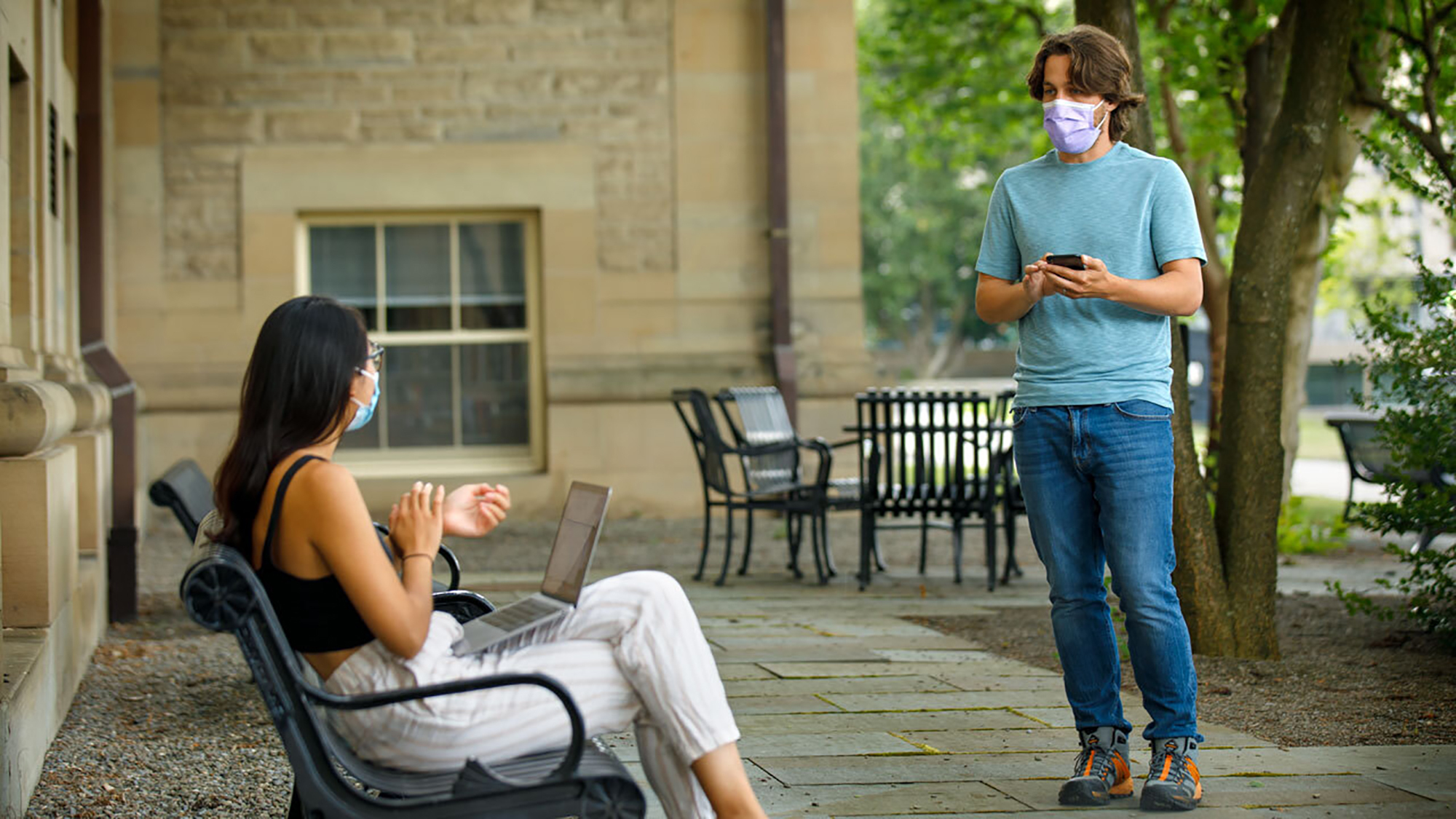What to Know
- Penn State students must sign a liability waiver prior to coming to campus to live and/or attend classes this fall.
- Penn State is also requiring around 30,000 students, faculty and staff from coronavirus hot spots to be tested for COVID-19 prior to arrival.
- Masking will be required in campus buildings once Penn State students return.
Penn State students must sign a waiver acknowledging the health dangers of coronavirus and could be asked to get a COVID-19 test prior to coming to campus for the fall semester.
All students must read and sign the Penn State Coronavirus Compact posted on the Penn State COVID-19 pre-arrival website, which outlines what is expected of PSU students.
“I assume any and all risk of exposure to COVID-19 that may result from attending Penn State, or participating in Penn State activities, and I acknowledge that exposure or infection may result in personal injury, illness, permanent disability, or death,” the compact, which is dated August 2020, says.
In the waiver, students also agree to cooperate with contact tracing, wear masks in all campus buildings and outdoors when social distancing isn’t possible and agree to isolate if exposed.
By signing the coronavirus waiver, Penn State undergraduate and graduate students who are contacted by the university to do so agree to get tested for COVID-19. The university said it expected to contact around 30,000 students, faculty and staff to get tested before stepping foot on campus, starting classes or moving into residences.
“Select students living in counties across the United States with high infection rates will be contacted by the University on an individual basis in August to complete mandatory testing,” Penn State says in its pre-arrival guidance.
The testing will be done through at-home saliva tests with results shared with the university and student. Those who test positive can't come to campus until they are cleared by a health care provider under Centers for Disease Control and Prevention guidelines.
All students must self-quarantine for seven days prior to arriving on campus. They also must get the flu vaccine as soon as it becomes available.
“Students who are already living on campus or have moved in to off-campus housing should also complete the (steps) before the start of classes,” the university says.
Besides the pre-arrival requirements, Penn State also has masking and social distancing standards in place for the fall. Despite all the guidance, university President Eric Barron noted the responsibility lies with students to keep the semester going safely as coronavirus continues its spread around Pennsylvania.
“We know our students want to do their part to not only help reduce transmission of the virus within the community, but also to increase our chances and ability of remaining on campus for the semester,” Barron said. “These are concrete steps students must take as Penn Staters to do their parts.”
Students could face disciplinary action -- including suspension and expulsion -- for breaching their coronavirus agreements.
"In short, I recognize that I may forfeit my opportunity to continue as a student at Penn State if I fail to honor these critically important public health considerations with the sincere and earnest spirit in which they are expressed," the COVID-19 Compact ends.
The full standards for the return to Happy Valley are listed on Penn State’s website.



